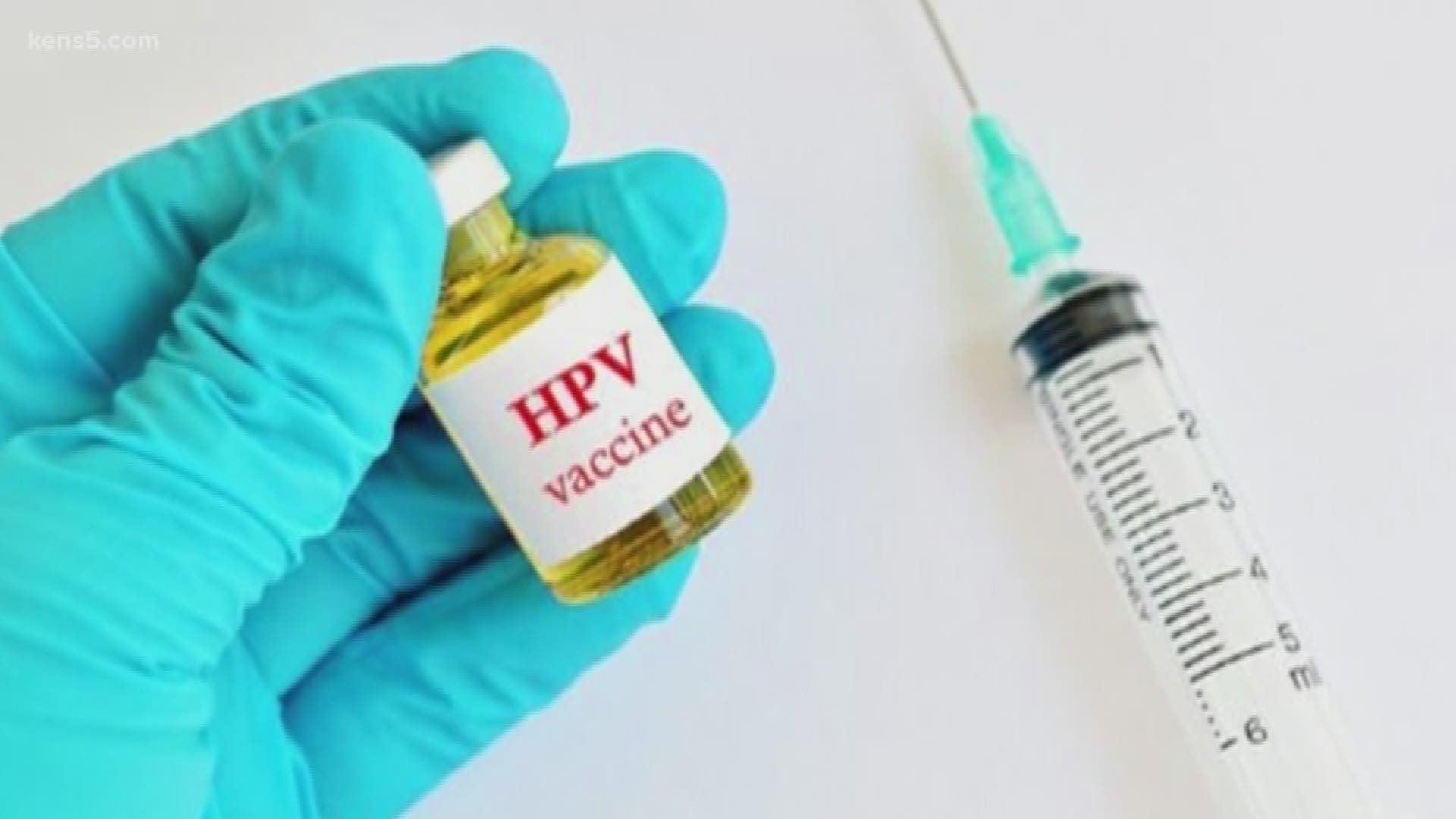SAN ANTONIO — HPV is one of the most common sexually transmitted infections, but doctors say getting the vaccine could save your life.
The treatment has been around for just over 10 years, and since doctors began administering the vaccine they've seen a tremendous drop in certain incidents of cancer.
"There is one vaccine, and it's preventing six different cancers. So we're not talking about cancer prevention just in women, but also cancer prevention in men," said Dr. Anna Taranova, executive director of research and information management within the University Health System.
Those cancers include cervical cancer, vaginal cancer, cancer of the vulva, cancer of the back of the throat, including the tonsils and the tongue, anal cancer and penile cancer.
"We bring in experts from the field to educate our providers on the importance of the HPV vaccination for boys and girls age 11 to 12, but they are also trying to catch patients that are older and did not get their vaccines on time," Taranova said.
When it comes to vaccinating children, she said not to think of it as only preventing an STD.
"Sometimes parents think that giving a child HPV vaccine is kind of a green light ticket to sexual activity, but just like giving a tetanus shot, it's not the green light to go and poke your fingers on a rusty nail," she said.
According to the Centers for Disease control, 80 percent of people will get an HPV infection in their lifetime. Infections that cause HPV cancers have dropped by 71 percent among teen girls. 31,200 cases of cancer would be prevented every year with the HPV vaccination; that's the attendance of an average baseball game.
Taranova continues to champion the vaccine not just as a doctor, but also as a parent of two girls herself.
"My older daughter already received her vaccine at the age appropriate time," she said. "My younger one will be receiving her vaccine once she gets older."
For more information about family health, call (210)358-3045. You can also find the rest of KENS 5's Wear The Gown stories here.

